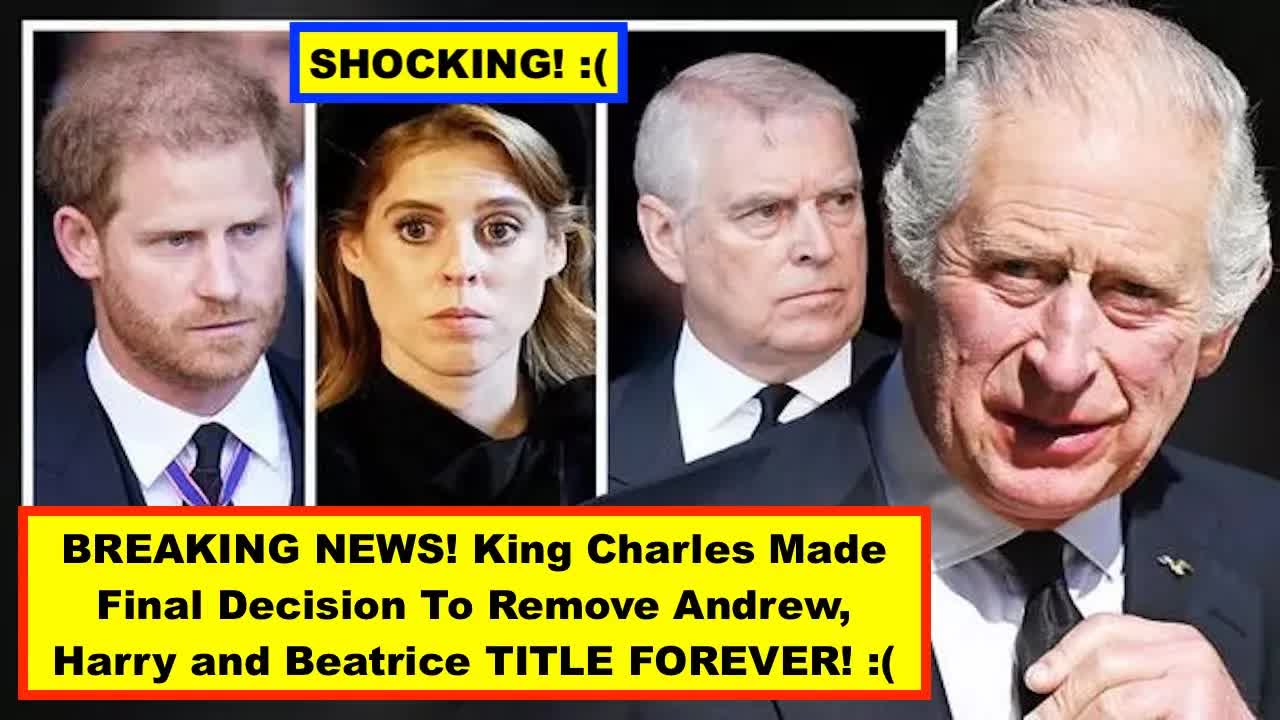In a significant shift within the British monarchy, King Charles III is reportedly considering changes to the law regarding who can serve as councillors of state.
This move could potentially exclude non-working royals, such as Prince Andrew, Prince Harry, and Princess Beatrice, from these crucial roles.
The proposed amendment aims to ensure that only those actively engaged in royal duties can step in for the monarch during times of absence.
Currently, the 1937 Regency Act allows the spouse of the reigning monarch and the four adults next in line for the throne to act as councillors of state.
Traditionally, this role has been filled by prominent members of the royal family, including the Prince of Wales and the Duke of Cambridge, along with the Duke of Sussex and the Duke of York.
However, as the monarchy evolves, so too does the need for its representatives to reflect active participation in royal duties.
Reports suggest that King Charles recognizes the awkwardness of having individuals who are not actively serving in royal capacities holding positions that may involve significant constitutional responsibilities.
This realization comes amid growing calls from commentators and royal observers for Buckingham Palace to reconsider the current framework governing councillors of state.
The proposed legal amendments would require action from the Houses of Parliament, a process that could unfold swiftly given King Charles’s reported urgency.
If successful, this change would not only affect Andrew, Harry, and Beatrice but could also pave the way for working royals like Prince Edward and Princess Anne to assume these important roles.
Previously, under Queen Elizabeth II’s reign, the roles of councillors were filled by members who had varying degrees of involvement in royal duties.
With the transition to King Charles’s reign, there’s an opportunity to redefine these roles and ensure they align more closely with the current expectations of royal service.
This potential shift raises intriguing questions about the future of the monarchy.
Will this new approach bring a fresh perspective and vigor to the institution?
Many royal watchers are eager to see how these changes might impact the public’s perception of the royal family.
Furthermore, the inclusion of active royals in these positions could help restore confidence in the monarchy at a time when it faces scrutiny and calls for modernization.
By prioritizing those who are committed to royal duties, King Charles could signal a new era of accountability and relevance for the monarchy.
As discussions around these changes continue, the public remains curious about the implications for the royal family.
Will this be a turning point that rejuvenates the monarchy’s image, or will it lead to further divisions within the family?
In the meantime, the royal community is buzzing with speculation and opinions.










